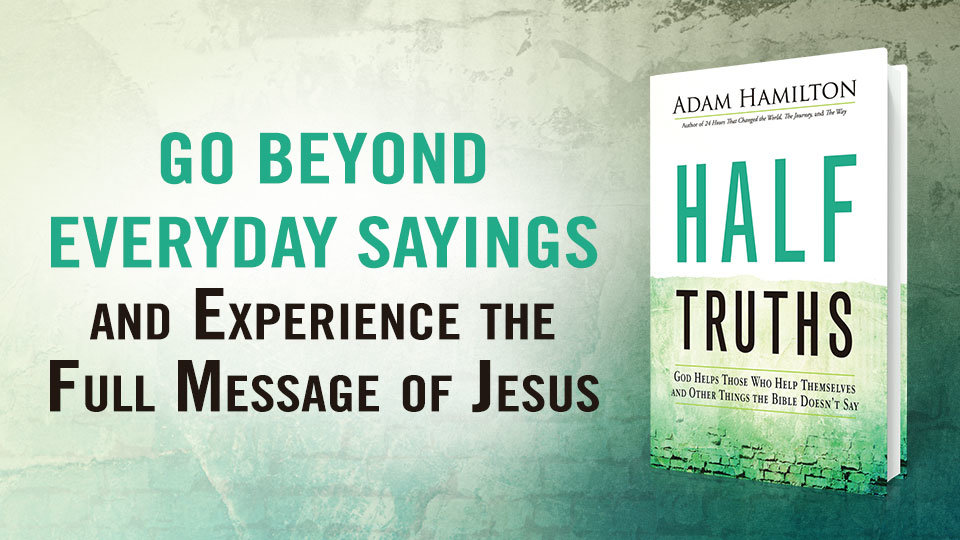God Helps Those Who Help Themselves???
Today’s post is an excerpt from my new book, Half Truths: God Helps Those Who Help Themselves and Other Things the Bible Doesn’t Say, which examines several popular half truths that many Christians embrace. I vividly recall an episode of The Tonight Show from some years ago. It included one of Jay Leno’s trademark “Jaywalking” segments, in which he would ask questions of random people on the street. On this occasion, he asked people to name one of the Ten Commandments. It was startling to me how many people answered him by saying, “God helps those who help themselves.” That, of course, is not one of the Ten Commandments. But those who gave that erroneous answer have plenty of company. A survey by the Barna Group, a Christian polling firm, found that better than eight in ten Americans think “God helps those who help themselves” is in the Bible. In fact, more than half of the respondents were strongly convinced that this is one of the major messages of Scripture. The “One-Third” Truth For the record, the Bible contains no such verse. The statement apparently originated in Greek mythology in the fifth century before Christ. Then it was echoed by various philosophers over the next two-and-a-half millennia. Most notably, in 1736 Ben Franklin popularized it in Poor Richard’s Almanac, helping to give the statement a permanent place in American thinking. Even though it’s not in the Bible, can we find any biblical truth in this theological idea? In one sense, I think it does capture a biblical teaching. But in two other important ways, I would argue that “God helps those who help themselves” is absolutely untrue. Instead, it sends a message that is the direct opposite of the Bible’s message. So it really doesn’t even rise quite to the level of a half truth—more like a “one-third” truth. The one-third-truth is that God does in fact expect us to help ourselves to the degree that we are able. For example, when we pray, “give us this day our daily bread,” we don’t expect food to miraculously show up on our table – we have to shop and prepare our meal. I’ve met Christians who were disappointed with God because God did not answer their prayers for a job or to sell a house, when they were applying for jobs they were not qualified for or asking a higher price for their home than it was worth. But the falsehood of this “truth” is seen in two circumstances. Often those who say it are speaking about the poor and it is used as an excuse to avoid helping those in need. Yet many of those who are trapped in poverty cannot escape without the help of others, which is why the Bible consistently calls us to help those in need. In those moments we become God’s means of answering another’s prayers. This points to the even more significant falsehood in “God helps those who help themselves.” The very essence of the gospel is that God helps those who cannot help themselves. Christians believe that we cannot save ourselves from the brokenness and alienation from God that we call sin. We are constantly in need of saving, which is why we call Jesus, “Savior.” There is a theological word for God’s willingness to help those who cannot help themselves: we call it GRACE. If you’d like to find out more about “God helps those who help themselves,” check out Half Truths. Click here to order the book and read more.


